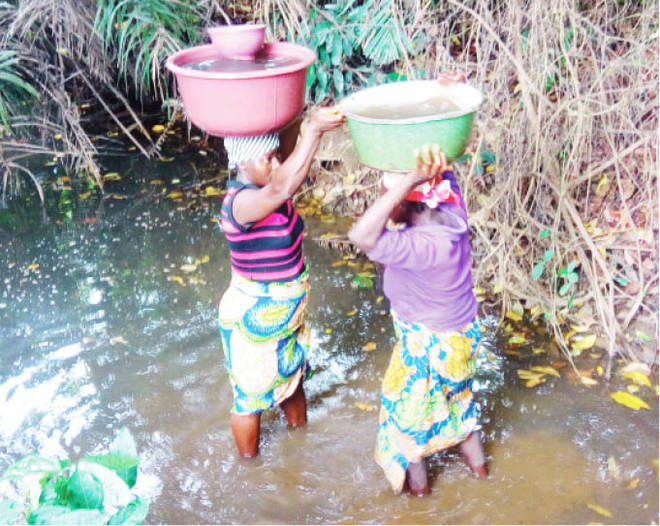Unhygienic water: 23 children down with diarrhoea at Guturkpe
Twenty-three children between the ages of five and 11 years are said to have been treated of diarrhoea as a result of drinking unhygienic water at Guturkpe community of Kuje Area Council of the FCT. A community health worker at Tude clinic, Saidu Danjuma, who spoke with our reporter, said the children were admitted and […]


Twenty-three children between the ages of five and 11 years are said to have been treated of diarrhoea as a result of drinking unhygienic water at Guturkpe community of Kuje Area Council of the FCT.
A community health worker at Tude clinic, Saidu Danjuma, who spoke with our reporter, said the children were admitted and treated of diarrhoea, whooping cough and malaria.
He said the diarrhoea must have been caused by the unhygienic water the children drank at the community, adding that the disease was prevalent among people of the community as adults too had been treated of the same sickness.
“Even adults were admitted here in this clinic and given treatment as a result of the bad nature of water they use in that community,” he said.
He said for a week he battled to save the lives of the children who were down with diarrhoea, and urged the government to provide the community with pipe-borne water to curtail the situation.
“In fact, they are lucky when some patients were brought here, as then there were enough drugs on ground, and we quickly attended to them,” he added.
The village head of the community, Ayuba Alkali, who spoke with Aso Chronicle at his palace, said the unhygienic water his subjects drank was responsible for the outbreak of diarrhoea in the community.
He said children started stooling and vomiting and when they were taken to hospital, they were diagnosed with diarrhoea.
He said the children were taken to Tude, a nearby village, for treatment about two months ago. He, however, said none of the children died.
The chief said lack of potable water had been a major challenge for the community, especially during the peak of the dry season.
He said his subjects suffered a lot going to the dried up stream to dig out sand and wait for several hours before water collected for them to scoop and fill their containers.
“We have been facing numerous challenges but more importantly, lack of water as the whole village does not have a single borehole,” he said.
He added that there was no single government project at the community, not even a clinic, stressing that when there was outbreak of water-borne diseases, they had to rush to Tude village for treatment.
“Just go round the village yourself if you will see any government project, even though the village is not big. Apart from a classroom of primary school which was built a year ago, there is no government presence in this community,” he said.
He added that lack of portable drinking water for residents of the community posed a serious health hazard to the lives of people of the village.
“My people are worst hit during the dry season when women go to the pond or any nearby dry stream to dig out sand before they get water. And the water is not even treated before drinking, which I believe is the cause of diarrhoea to some children and even adults,” he said.
He added that he had complained severally to the authorities of the area council over the problem of water, but that nothing had been done about it.
“The last time a committee I set up went to meet with the area council chairman, they came back and told me that they would soon embark on sinking of boreholes but up till now, we have not seen anybody,” he said.
Reacting, the chairman of the council, Alhaji Abdullahi D. Galadima, who spoke with our reporter through his special adviser on media and publicity, Haruna Usman, said Guturkpe community was among three other villages that had been captured in the 2018 budget which will be provided with water and grading of the road.
